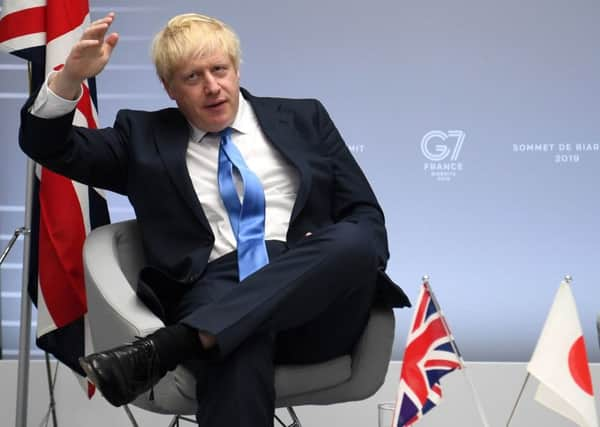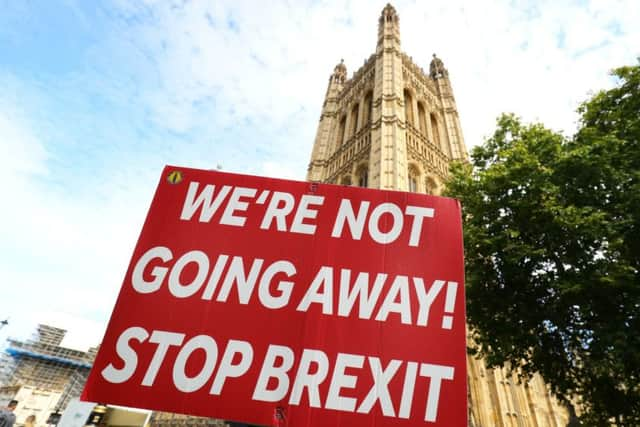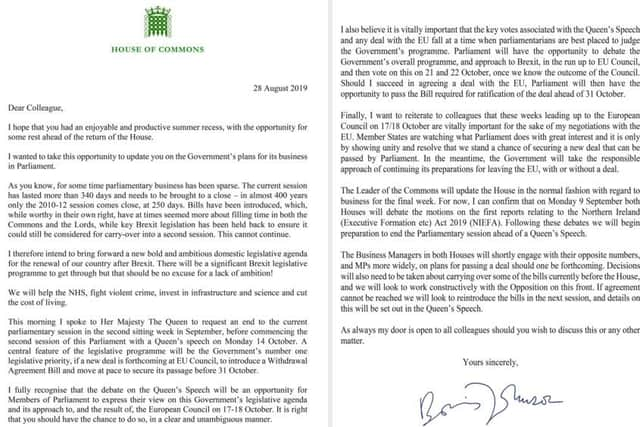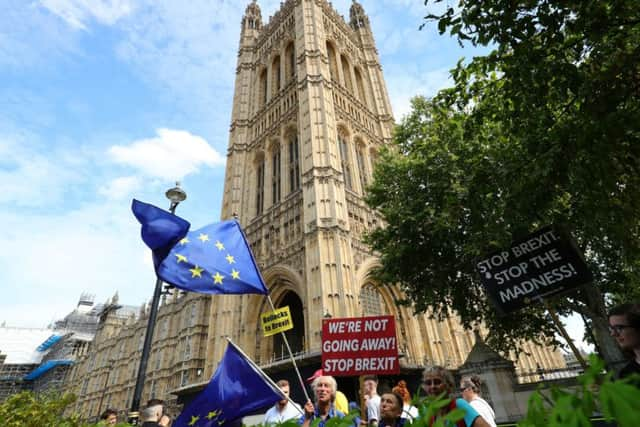What Boris Johnson’s suspension of Parliament means for Brexit and politics – The Yorkshire Post says


Yet the context is critical as politicians consider the consequences after John Bercow, the interventionist Speaker, described the timing of the prorogation as “a constitutional outrage”.
Advertisement
Hide AdAdvertisement
Hide AdThere are three reasons for this. A day after Opposition MPs met to agree tactics, Mr Johnson’s government appears more organised than Theresa May’s administration which, by the every end, had lost the ability to set the agenda.


Second, Ministers are going out of their way, in a pre-election push, to respond to public concerns about the NHS, schools and police numbers – hence next week’s short-term spending statement by Chancellor Sajid Javid. They don’t want to be seen to be bogged down by Brexit.
Advertisement
Hide AdAdvertisement
Hide AdFinally, this has already been the longest Parliamentary session in history – it began on June 21, 2017 – and a new Queen’s Speech was always going to take place this autumn so new laws can be passed.


Yet, as Mr Johnson comes under fire for proposing to close Parliament, still on its six-week summer recess, from mid-September until October 14, MPs were already going to be away from Westminster for three weeks next month because of the timing of the once-a-year party conferences. Perhaps politicians should be considering whether this annual shutdown – one that is being exacerbated this year by Brexit – can still be justified when it is perfectly feasible to hold these glorified fundraisers over long weekends.
And the Government’s timing does, at the very least, give MPs the chance to have an informed debate – and vote – on any deals that might, or might not, be struck at the next EU summit on October 17 just a fortnight before the UK’s intended departure from the European Union.
However, given one of Mr Johnson’s central arguments in the Brexit debate was sovereignty, and the importance of Parliament ‘taking back control’ from Brussels, he has still to convince people that his tactics meet this notion – or whether this is all about the PM and Dominic Cummings, paving the way for an early election by being able to blame their opponents if they are thwarted.
Advertisement
Hide AdAdvertisement
Hide AdThe fact that the Commons has only sat for one day since he took office, and will only sit for a week, or slightly more, in September, if the Government gets its way, does throw up legitimate constitutional questions – the problem is that Brexit, and events pertaining it, are so unparalleled that there are few, if any, historic precedents to observe.


Yet Labour leader Jeremy Corbyn and his acolytes, also need to be more transparent about their motivations – is it just to stop no-deal; to bring down the Government or to play for time to block Brexit altogether? That, too, needs to become clearer after another extraordinary day which widened Brexit divisions; perplexed voters and risked dragging the Queen into a constitutional crisis. Is that what anyone wants as the ultimate game in political brinkmanship is played out?